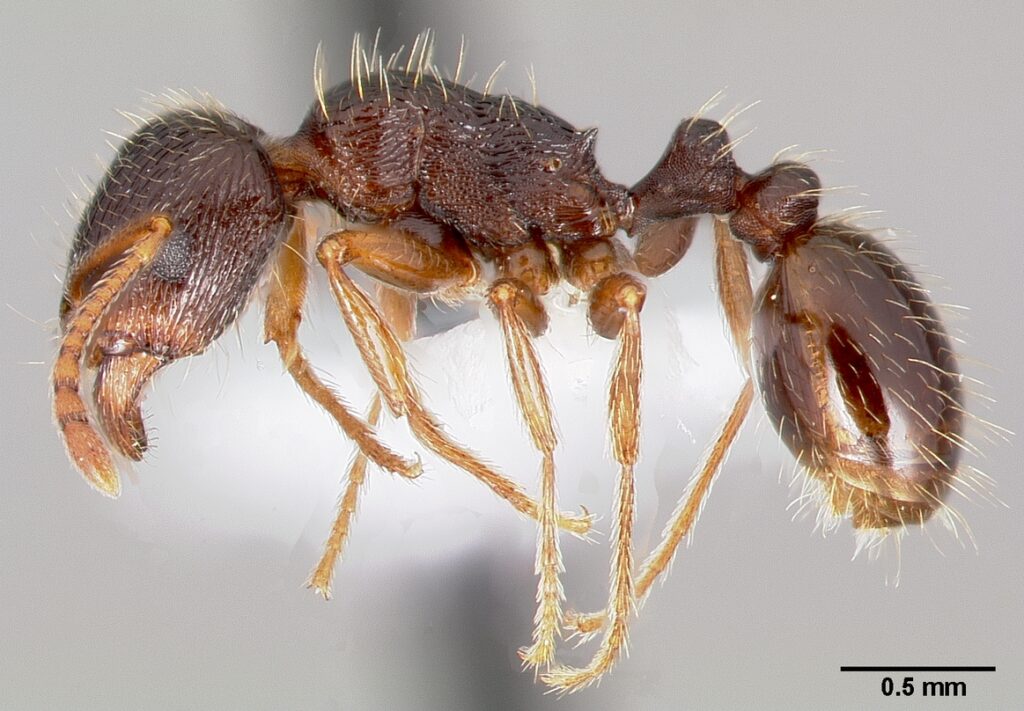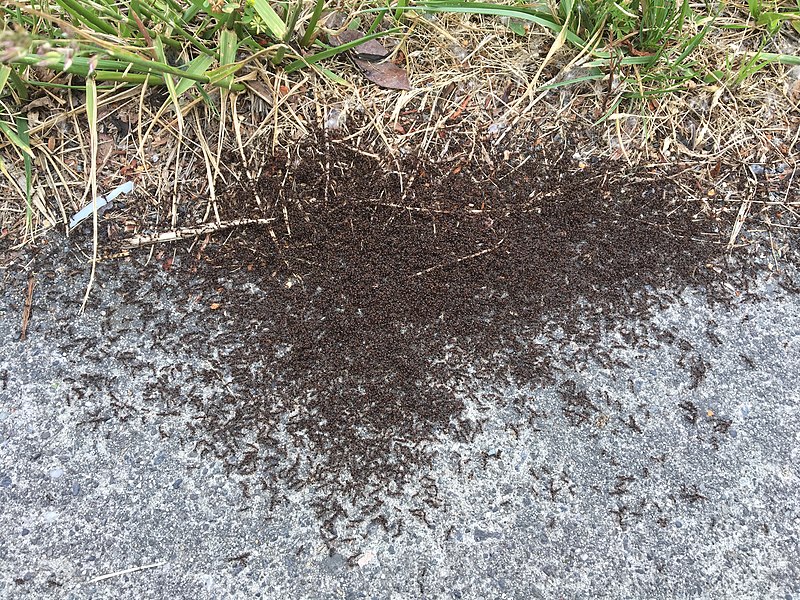Do you know that there are about 22,000 species of ants? But some species are more likely to cause an ant infestation in your home – such as pavement ants. So, here is everything you need to know about pavement ants.
What are pavement ants?
To most homeowners, almost all ants look the same. And all of them could pose a threat to your health and your property. But it’s really important to know what kind of ant you are dealing with. If you know the ant species on your property, you will know its behaviors, nesting habits, and risks. And this knowledge will make it easier for you to get rid of them.
So without further ado, here are the basics you need to know about pavement ants.
- They prefer to nest in concrete slabs. Pavement ants get their name from the fact that they often nest in driveways, pavements, and sidewalks. You will usually see a mound of dirt and soil around the concrete structure where they are nesting. Their nest can be very deep inside the concrete structure.
- They don’t cause significant structural damage. It’s easy to assume that pavement ants can cause serious structural damage to your property. After all, they are burrowing deep into concrete structures. But luckily, they are not as destructive as other pests, like termites.
- They are generally just a nuisance. These ants do bite and sting, especially when they feel threatened. But generally, they will leave you alone if you leave them alone. They are only really aggressive toward other ant species who pose a direct threat to their colony. You can say that an infestation from pavement ants is really just a home inconvenience since they don’t pose that much of a threat to your health and property.

Where do pavement ants nest on your property?
With the name “pavement ants,” it’s easy to think that they can only thrive outdoors on your “pavement.” But they can actually thrive both inside and outside of your home. They can thrive in any place where they can bury deep into a surface.
Outdoors
Outside your home, you will usually find pavement ants on driveways, pavements, sidewalks, and other pathways that have been flattened by concrete or a similar material. They can thrive in the cracks and holes of gravel pathways, paving stones, and other structures with small gaps.
If you see a mound of dirt and soil near these gaps, your first reaction may be to bomb it with water using your garden hose. But this may not be very effective because the nest can be deep inside the pavement. You are just basically washing the surface.
Indoors
The inside of your home also has concrete slabs and flattened surfaces where pavement ants can thrive, such as door jams, floorboards, foundations, and wall edges. These ants thrive particularly well in areas with high moisture, so be on the lookout for an infestation in basements, bathrooms, and kitchens.
Also, remember the resources that help any kind of pest thrive – food and water. Ants can nest near areas with food crumbs and water spills, like countertops, pantries, sinks, under tables, and even trash cans.
How do you get rid of pavement ants?
The best way to get rid of any kind of pest infestation is by getting the help of pest control services. But sometimes, homeowners think they can deal with the problem themselves. Luckily, there are a lot of ways to get rid of pavement ants on your own.
- Avoid overly simplistic methods. First, don’t even bother with overly simplistic methods like water bombing the ant nest you have seen on your driveway. If it were that simple, pest control services would have been out of business a long time ago.
- Use insecticides. You can buy insecticides to get rid of pavement ants, but make sure to buy one that specifically mentions that it can get rid of ants. Follow the instructions on its label diligently. If you don’t, it may prove to be ineffective and unsafe. Also, remember that insecticides have potentially harmful ingredients, so it’s best not to use them around unsupervised children and pets.
- Try ant baits. Ants can be hard to deal with because of their sheer numbers. To prevent their numbers from replenishing, it’s important to target the ant queen. Ant baits are great because ants take them back to their colony and potentially kill the ant queen. There are commercial ant baits you can buy, but you can also make them at home with boric acid and sugar. Boric acid is toxic against ants, but not so much against humans. This makes homemade ant baits a little less risky compared to insecticides.
- Look for natural solutions. If you really prefer ant control methods with little to no risk, you can try looking for natural solutions. There are some natural ingredients that kill or help repel ants, such as cedarwood, clove, lemon, orange, peppermint, and tea tree. You can get their essential oil versions and spread them on areas with high ant activity.

How do you prevent pavement ants?
You can avoid or prevent pavement ants from coming back by doing the following.
- Seal all cracks and holes. Remember that these ants burrow into the tiniest of gaps between surfaces. If there are no gaps they can get into, you minimize the risk of having these pests on your property.
- Don’t give them easy access to food and water. Ants are foragers. They travel around their nest’s vicinity in search of food and water. If they can find these resources around your property, you are basically helping them sustain themselves. Always pick up food crumbs, wipe spills, fix plumbing issues, and practice proper food storage and waste management.
- Avoid moisture build-up. You can prevent moisture build-up inside your home by wiping spills and fixing plumbing issues. But what about outside, which is more exposed to the elements? The least you can do is to clear your gutters, maintain your downspouts properly, and put soil away from walls as much as possible, especially moist soil.

